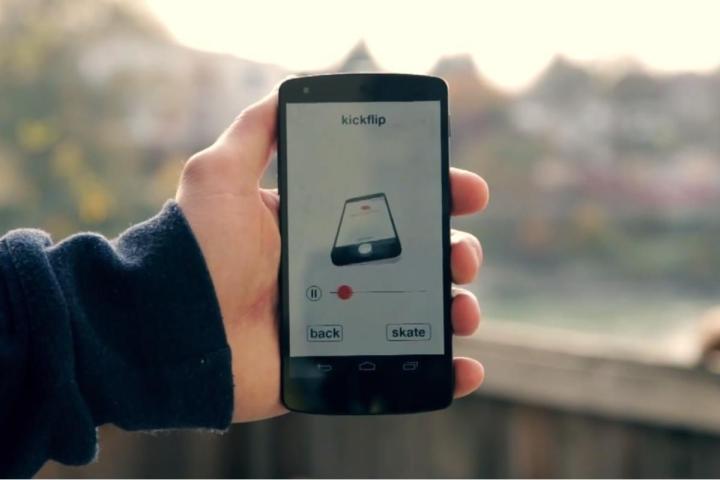
The app is a game that has you mimic the flips and swings a skateboarder might do, except you have to perform the moves with your smartphone. In other words, you have to flip and toss your smartphone the same way your would a skateboard. As such, you might begin to realize why Gyro Skate, originally destined for iOS, was rejected by Apple. To counter the setback, the duo remade the app for Android, and while it works with the Nexus 5, your mileage may vary. You’ll need an Android handset that is equipped with a gyroscope, but be warned, the app currently doesn’t work with the HTC One or LG G3.
If you’re not willing to part with your $2 just yet, there is a free demo version that includes four stages and 32 tricks. Each trick comes with a video demo, showing you how the specific trick is done. If you do decide to splurge, however, the app includes support for right- and left-handed users. You might also want to consider a heavy-duty protective case.
It also turns out that iOS users aren’t completely out of luck. So long as you’re okay with jailbreaking your iOS device, Gyro Skate should work on every device from the iPhone 4 onwards — not that we recommend doing so. Gyro Skate is currently available on the Play Store.

